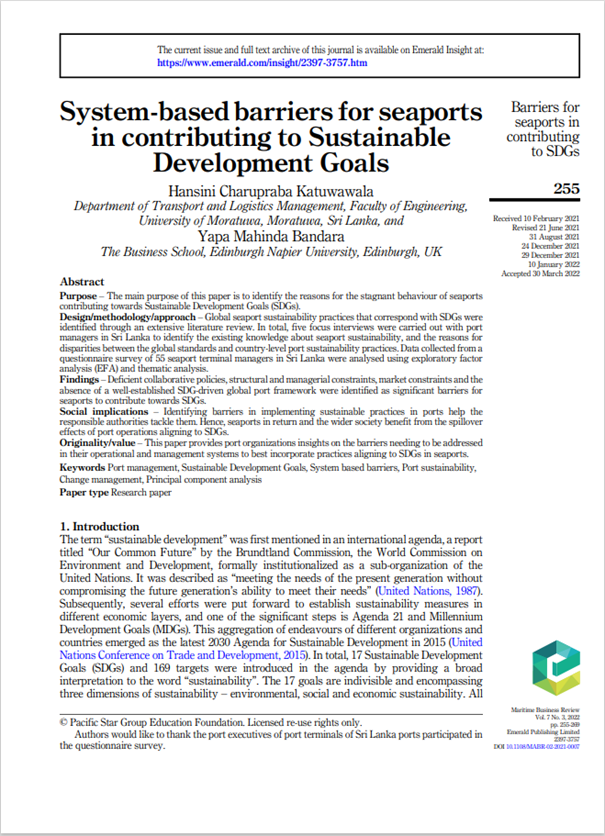Abstract
Purpose – The main purpose of this paper is to identify the reasons for the stagnant behaviour of seaports contributing towards Sustainable Development Goals (SDGs).
Design/methodology/approach – Global seaport sustainability practices that correspond with SDGs were identified through an extensive literature review. In total, five focus interviews were carried out with port managers in Sri Lanka to identify the existing knowledge about seaport sustainability, and the reasons for disparities between the global standards and country-level port sustainability practices. Data collected from a questionnaire survey of 55 seaport terminal managers in Sri Lanka were analysed using exploratory factor analysis (EFA) and thematic analysis.
Findings – Deficient collaborative policies, structural and managerial constraints, market constraints and the absence of a well-established SDG-driven global port framework were identified as significant barriers for seaports to contribute towards SDGs.
Social implications – Identifying barriers in implementing sustainable practices in ports help the responsible authorities tackle them. Hence, seaports in return and the wider society benefit from the spillover effects of port operations aligning to SDGs.
Originality/value – This paper provides port organizations insights on the barriers needing to be addressed in their operational and management systems to best incorporate practices aligning to SDGs in seaports.
